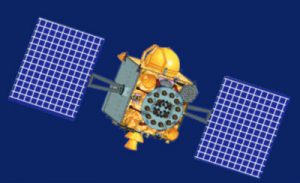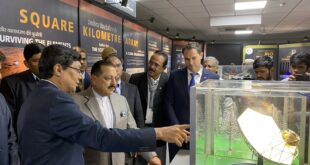
The Indian Space Research Organisation (ISRO) has signed contracts with three Indian companies for the manufacture of up to 27 satellites over the next three years, marking a change of direction for the ISRO in allowing Indian private industry to build space systems, rather than building them in-house.
The two private and one government-run firm are scheduled to build as many as 27 satellites over the next three years. To date, only two satellites have been assembled by Indian private industry, the IRNSS-1H and IRNSS-1I, late last year and early this year. Both satellites were assembled by a consortium headed by Alpha Design Technologies, and headquartered in Bengaluru. This consortium includes six SMEs: Newtech, Aidin, Aniara, DCX, Vinyas, and Exsed Speed.
However, under these new contracts, the Alpha Design Consortium, defence PSU Bharat Electronics Limited (BEL), and Tata Advanced Systems Limited will each produce three satellites per year for the next three years. These firms will procure sub-systems from the ISRO supply chain to enable integration of the satellites, according to the report.
The satellites produced will be used for a combination of communication, imaging, and meteorological purposes. The contract also has an option for a two-year extension, which would lead to the production of another 18 satellites. All three firms will work at a new facility created for private industry at ISRO Spacecraft Integration Test Establishment (ISITE) in Bengaluru.
ISRO has not issued an official statement on this deal, and Indian media reports it was signed with no media present. Indian media also reports there is a gag order in place regarding the financial details of the agreement.
An unnamed ISRO source is quoted anonymously and off-the-record in a Times of India report, explaining: “The contract is for each of the three to make nine 1.6 tonne to 2-3 tonne satellites, based on requirement, which means they’ll make a total of nine every year, and 27 by the end of three years.”
Colonel (retired) HS Shankar, CMD, Alpha Design, confirmed the deal to the Times of India, telling the newspaper that, “We signed similar agreements as the Tatas BEL, and I hope that creates the ecosystem to allow more industries in the future.”





